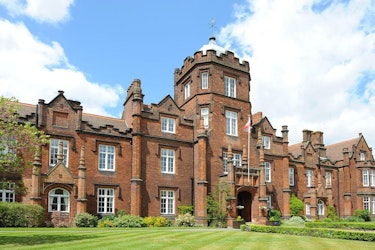The big picture: The Trust's waiting list grew from 87,206 in June 2023 to 88,986 in June 2024, indicating growing challenges in what has been described by health bosses as "the busiest summer ever" for the NHS.
By the numbers:
15,078 patients were awaiting one of 14 standard diagnostic tests, such as an MRI scan, non-obstetric ultrasound or gastroscopy, with 2,782 waiting at least six weeks
3,864 patients (4%) had been waiting over a year for treatment
72% of cancer patients began treatment within two months of urgent referral in June, down from 77% in May and below the NHS target of 85%
The median waiting time from referral to treatment remained at 15 weeks in June
Context:
Nationally, 7.62 million people were waiting to start treatment at the end of June
This marks the third consecutive rise in overall waiting lists across England
What they're saying: Louise Ansari, chief executive at Healthwatch England, said: "We are concerned that the progress made in speeding up both cancer diagnosis and the commencement of cancer treatment in recent months is slowing."
Professor Sir Stephen Powis, NHS national medical director, stated: "Nobody in the NHS wants to see patients experiencing long delays and we are committed to working with the Government to create a 10-year plan for health that includes a clear plan to bring waits down."
Karen Lough is Director of Elective Care at East Suffolk and North Essex NHS Foundation Trust. She said:
“We are seeing an increase in the number of people referred to us for our care each month. Our priority is to see all our patients as quickly as possible and thanks to the hard work of all our teams, we are seeing significant reductions in the length of time people are waiting. We are running ‘super Saturday clinics’ with surgeons, nurses, therapists and other colleagues all working together to treat and care for patients, to bring faster care for our communities”.
The bottom line: The Trust, like many across England, continues to face challenges in meeting NHS targets for waiting times across various services.







